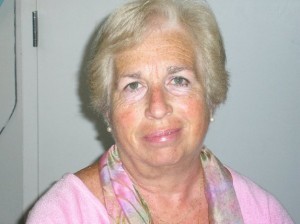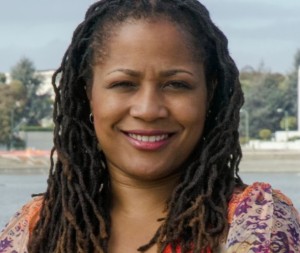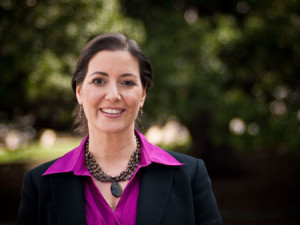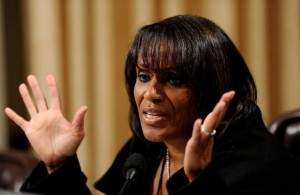Two More Measures on November Ballot? Why Not Police Accountability?
Jul 3, 2014
Posted in Elections & Voting Rights, Equal Rights/Equity, Police-Public Safety
By Ken Epstein
When a community coalition sought the city council members’ approval recently to put a police oversight commission on the November ballot, most of them opposed it.
The opinion on the council seemed to be that putting the $22 million a year public safety tax – the successor to Measure Y – on the ballot trumped all other issues.
They said any other ballot measure would be a distraction and confusing to the public and jeopardize funding to pay for 60 police officers and programs for crime reduction and youth.

Council members also said they could not vote to put the issue on the ballot because they did not have time to discuss and modify it, and staff did not have time to analyze it.
Therefore, supporters of police accountability noted with surprise that council members voted Tuesday night to put Councilmember Libby Schaaf’s charter amendment, an Independent Redistricting Commission, on the ballot.
Councilmembers also may be prepared to add a second charter amendment to the ballot at their July 15 meeting: an enhanced Public Ethics Commission that would cost $900,000 a year, backed by Councilmember Dan Kalb.
Neither of these measures has gone through the council’s committee process, nor were they analyzed by staff for their budget, legal and policy implications, which was cited as an insurmountable obstacle to the police measure.
“Different strokes for different folks – Both Kalb’s and Schaaf’s ballot measures were written by them, and ours was written by the community,” said Rashidah Grinage, a spokesperson for the coalition that had written the police accountability measure.
“ It’s OK for them to skirt the process, but it’s not OK for the community,” she said.
“The implication is the they know what they’re doing, and the community doesn’t.”

“I promise that if you poll the community, police oversight would come up as the number one issue, compared with the priorities of the council,” said Grinage, adding that the she was not sure the council has still had time to reconsider the police measure.
Councilmember Noel Gallo, who had championed putting the police measure on the ballot, said he has no problem backing a ballot measure that encourages citizen involvement and allows the public to vote.

He also noted that the redistricting measure will have no impact for six years, and is author, Libby Schaaf, is a mayoral candidate.
“I have no problem getting the citizens to engage and letting the public vote, and
Libby is running for mayor,” he said.
Councilmember Lynette McElhaney is chagrined by her fellow council members’ double standard as to what ballot measures are considered legitimate.
She told the Post that she strongly backs putting police accountability on the ballot in the future but remains convinced that nothing is more important than passing the successor to Measure Y at this point.
“I think it was the height of hypocrisy and insensitivity to bring (the redistricting measure) forward,” said McElhaney, adding that Schaaf made powerful arguments in the Public Safety committee against allowing the police measure to go forward but took the opposite position on her own ballot measure.
“She wanted to ramrod this measure that has no life or death consequences to it through the City Council,” she said. “This is something that doesn’t even apply until 2020.”
McElhaney is also concerned that putting a measure on the ballot costs between $350,000 and $400,000, which was not discussed or budgeted at this week’s council meeting.
When the council polled the public’s concerns, public safety was a top issue, she said, but, ”There was a very low response on public ethics reform, and redistricting never shows up.”
“I am going to ask council members to reconsider the (redistricting) measure,” she said. “There are considerable flaws in how the measure was drafted.”
To support police oversight “is a hard vote but a right vote,” McElhaney said. “This redistricting measure is a wrong vote.”
“I don’t know how we can look at the faces of the people who came to council to ask for the police oversight commission.”
Councilmember Desley Brooks says she has nothing against a measure that would create an independent commission to redraw council districts but questioned the rush to adopt a ballot measure that appears to be ill considered.
“If you say you’re doing this for the benefit of the community, why don’t you take it the community and discuss it?” She asked.
First of all, the names of people who are interested in being part of the commission would be reviewed by a retired judge, a law student and someone from a good government nonprofit. “Why these people?” Asked Brooks.

“The measure says there be ‘robust outreach’ to find members of the commission, but the proposal does not explain what that outreach would be,” she said.
After that, names of potential members of the commission “would be dropped into a hat and drawn,” she said. “This commission is supposed to be representative – people of color, low-income people, people from different parts of the city. I don’t know how that happens on a random draw.”
“This is very serious – it’s about voting rights,” added Brooks. “Be wary and leery before you vote for something just because it calls itself good government.”
Post Publisher Paul Cobb said he agrees with the questions being raised about the redistricting measure by Brooks and by Mayor Jean Quan at Tuesday’s council meeting. “I think these questions are serious, and that means the measure should be postponed,” he said.
“However, I agree with the ethics issues addressed by the public ethics commission measure and the police oversight measure. I think these two ethics measures should be joined and placed on the ballot.”
At press time, Councilmember Schaaf had not responded to the Post’s questions.